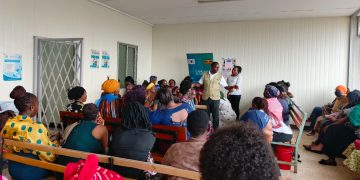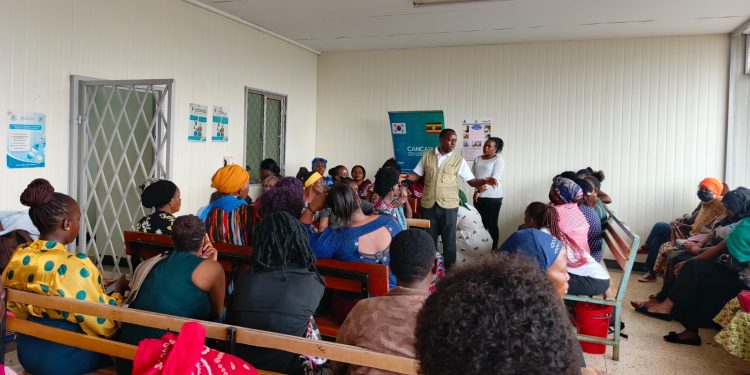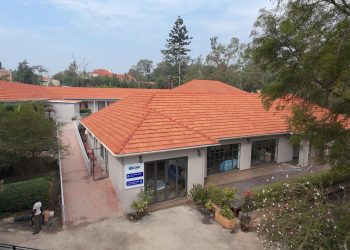This week, a significant number of individuals visited the Uganda Cancer Institute (UCI) for cancer screening. UCI initiated a campaign aimed at screening, diagnosing, and treating cases that may present at the institute.
The majority of attendees were women seeking screenings for both breast and cervical cancer.
Women in their middle age, and few elderly persons queued at the institute for the screening.
The one week screening cancer camp is aimed at creating awareness among the public on services available at the UCI.
The Director UCI Dr. Jackson Orem stressed that the public no longer have to travel abroad to seek cancer care since UCI has state of the art equipment.
He said that at all regional referral hospitals, cancer services are available.
“We have the facilities and the experts, so we encourage people to come and screen so that they are treated early enough,” Orem said.
According to information from UCI an estimated 35,000 Ugandans diagnose with cancer annually, of which, only about 7400 make it for care at UCI.
The head of Research and Training at the UCI, Dr. Nixon Niyonzima said that there will be an ultra-scan, and mammography free of charge.
He added that the cancer institute also does daily screening at the Institute.
One of the initiative of the UCI is to have these patients came to the clinic early to increase on the survival rates
“We have a static cancer screening clinic at UCI which works from Monday to Friday, but this week is special to encourage people to come to go for cancer screening,” he added.
Dr. Martin Origa, a Gynecologist Oncologist at UCI said the commonest cancer affecting women in Uganda is cervical cancer.
He revealed that a study conducted recently by Uganda Cancer Institute, in all sub regions of Uganda indicates that the commonest cancer affecting women is cervical cancer,
“Just like you heard about prostate cancer, cervical cancer doesn’t just drop out of the sky, and it takes like 10 to 12 years to develop, meaning there are stages in its development. It starts with an infectious virus called HBV,” he noted.
He said the World Health Organization (WHO) in conjunction with the Ministry of Health together with UCI are finding means of how they detect the majority of our women in pre cancer stages.
Pre-cancers mean changes before then we go to active cancer.
“We have the vaccination of the young girls to prevent the virus but for the girls who didn’t get the vaccine can get screened. These are between the ages of 25 years to 50 years who can screen and this is done every five years. The goal is to get these women with cervical cancer, pre cervical cancer and once you treat it is curable, however the sad thing is that about 70% of women who come here have stage three and stage four meaning,” he added.
He noted that cancer can be prevented..
“I want to thank UCI and KOFHI. We welcome this enthusiastically and we look forward to talking to women about the symptoms about their general health, how this cervical cancer is transmitted, what can they do to prevent it and in addition to that health education will go into screening and once we have identified these women who are at high risk, then we are able to offer them care,” he added.

































